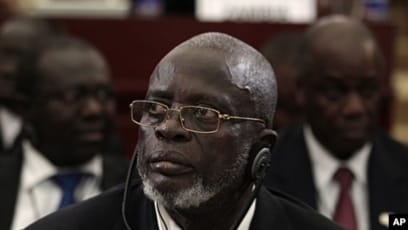Africa
Former Guinea-Bissau President’s Son Incarcerated in the United States

A significant legal development has occurred, resulting in the son of a former president of Guinea-Bissau being sentenced to prison in the United States. This verdict is a consequence of his involvement in illicit drug trafficking, marking a notable chapter in his family’s political history.
The individual, whose identity remains undisclosed due to legal reasons, was convicted of conspiring to bring cocaine into the United States. This case underscores the extensive global reach and impact of drug trafficking networks, even infiltrating the highest levels of political authority.
The trial exposed substantial evidence linking the defendant to a transnational drug trafficking operation spanning South America, West Africa, and Europe. This operation entailed smuggling large quantities of cocaine into the United States, with the defendant playing a crucial role in facilitating these unlawful activities.
The sentencing underscores the unwavering commitment of law enforcement agencies to combat drug trafficking and organized crime networks on an international level. It sends a clear message that individuals engaged in such illicit endeavors will face severe repercussions under the law, irrespective of their political or societal standing.
This case has reignited scrutiny of Guinea-Bissau’s position as a key transit point for drug trafficking in West Africa. The country’s porous borders and inadequate law enforcement have made it an appealing location for criminal groups looking to leverage its strategic position for smuggling narcotics into Europe and North America.
Despite continued efforts by the global community to tackle the problem, drug trafficking remains a significant obstacle to stability and governance in Guinea-Bissau. The inflow of illicit proceeds from the drug trade has fueled corruption, weakened state institutions, and perpetuated cycles of violence and instability in the region.
